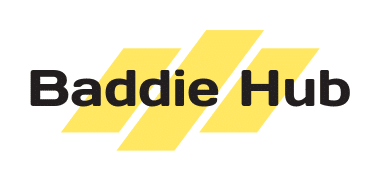Affordable Case Management Solutions for Small to Mid-Sized Nonprofits

Nonprofit organizations require the assistance of case management. However, large institutions have access to these services, while smaller ones have to make ends meet. Efficiency when managing client information is a top priority – resource-scaled teams cannot waste a single minute. Organizations with limited employees have to maximize every one, which is why proper management is key.
The High Cost of Outdated Systems
Large quantities of spreadsheets, paper files, and everyday databases that were not intended for human services work played an essential role for many small to mid-sized nonprofits. This approach often results in:
- Duplicate data entry consumes precious staff time
- Difficulty tracking client progress across multiple touchpoints
- Compliance risks from inconsistent documentation
- Limited reporting capabilities for funders and stakeholders
- Staff frustration and potential burnout
But the good news is that today’s case management systems based in the cloud provide options whose scope extends into the future with the organization, while at the same time ensuring the budget is manageable.
Right-Sized Case Management Solutions for Evolving Organizations
Casebook’s tiered pricing structure exemplifies how modern case management solutions have evolved to meet organizations where they are. Their Starter plan at $29 per user monthly provides a compelling entry point for organizations with up to three users, offering core functionality without overwhelming complexity.
This approach allows small teams to implement professional-grade systems previously available only to much larger organizations. With configurable forms, automated workflows, and mobile compatibility, even the most budget-conscious organizations can now access tools that dramatically improve client service delivery and outcomes tracking.
Beyond Price: Evaluating Total Value
When assessing case management solutions, looking beyond the monthly subscription fee reveals important value considerations:
1. Implementation and Onboarding Support
Unlike generic software that leaves you to figure things out alone, specialized case management solutions like Casebook include structured onboarding processes. Their approach includes:
- Goal and success definition to focus on implementation
- Process mapping to align the system with your actual workflows
- Configuration assistance for fields, forms, and workflows
- Data management guidance for historical information
- Training and launch preparation
This comprehensive approach significantly reduces the hidden costs of staff time spent configuring systems and the productivity losses that occur during poorly managed transitions.
2. Scalability Without Penalties
Many small organizations have experienced the pain of outgrowing entry-level systems, requiring costly migrations to more robust platforms. Modern case management solutions eliminate this problem through thoughtful scaling paths.
As your organization grows from three users to fifteen or more, platforms like Casebook allow seamless transitions between tiers without data migration headaches. Additional features unlock as you scale, providing functionality appropriate to your expanding complexity without overwhelming smaller teams with unnecessary options.
3. Configuration vs. Customization
Traditional case management solutions often required expensive custom development to match organizational workflows. Today’s configurable platforms allow non-technical staff to adapt forms, workflows, and reporting to their specific needs without costly programming.
For resource-constrained organizations, this shift from customization to configuration represents enormous value. Staff can adjust the system as programs evolve without dependency on expensive technical consultants or developers.
Security That Scales With You
Smaller organizations often face particular challenges in meeting security and compliance requirements without dedicated IT resources. Modern case management solutions build enterprise-grade security into all service tiers, ensuring that even the smallest nonprofit can maintain appropriate data protection.
Features like role-based access controls, data encryption, and HIPAA compliance capabilities that once required substantial investment are now available at accessible price points. This democratization of security capabilities helps level the playing field for organizations of all sizes.
Conclusion
The democratization of technology access for human service organizations is well represented by the development of case management solutions. In the past, the systems could only be obtained by government agencies or large charities, but now they are available to community groups which decide on humanitarian tasks.
With platforms like Casebook offering their Starter tier at $29/user/month, it is apparent that affordable but powerful case management tools can be within the reach of small and fierce teams. With the goal of basic business requirements and expanding them as the organizations change, such growth-oriented frameworks enable nonprofits of various sizes to allocate more resources towards their mission, but still leverage business technology.




